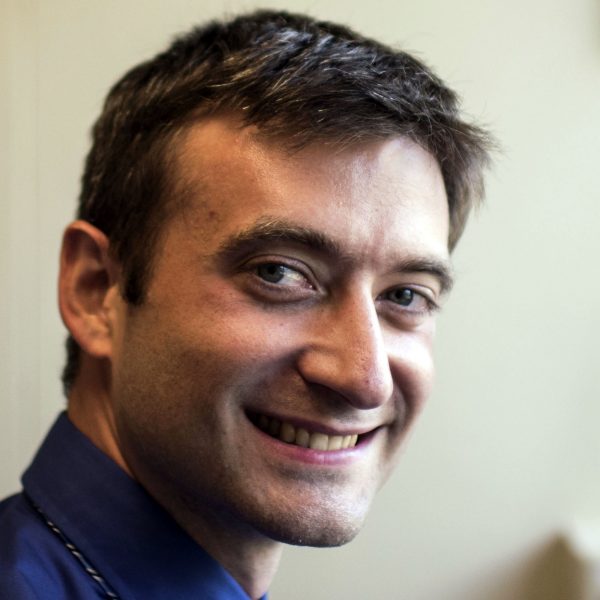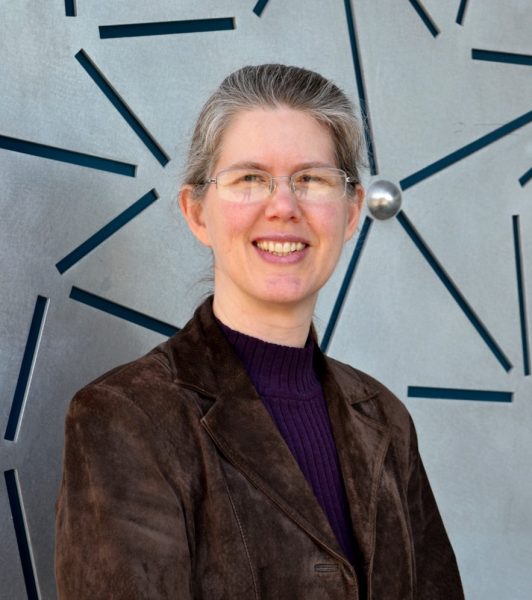Three LAS professors honored with inaugural Liberal Arts and Sciences Dean’s Professorship
Author: Amy Juhnke
Author: Amy Juhnke
Three professors in the College of Liberal Arts and Sciences (LAS) have been honored with the first LAS Dean’s Professorships.
Funding for the professorships was provided by the extraordinary generosity of two anonymous donors who gifted shares of Curriculum Associates, an educational technology firm, to the Iowa State University Foundation for the benefit of the College of Liberal Arts and Sciences. When the company was sold in October 2017, the proceeds from the sale were used to establish the Transforming Liberal Arts and Sciences endowment which provides student scholarships, supports high impact learning experiences and recognizes outstanding faculty. It also provides support for areas for which the donors feel a special passion: theatre, the Greenlee School of Journalism and Communication, and data science.
“This is an incredible opportunity to support outstanding faculty that are leading researchers and educators in their fields,” said Beate Schmittmann, dean of the College of Liberal Arts and Sciences. “The professorships will help attract and retain top faculty who will continue to advance the mission and vision of our college to be a national and international leader in research and scholarship.”
Chosen for this prestigious honor are Michael Dahlstrom, associate professor in the Greenlee School of Journalism and Communication; Matt DeLisi, professor of sociology; and Theresa Windus, Distinguished Professor of chemistry. Each will hold the professorship for at least three years. Additional LAS Dean’s Professorships will be created over the next few years.
Michael Dahlstrom

“While science plays a unique role in society — providing the best available evidence for policy choices, understanding the world, and informing citizens’ daily lives — it does not hold any intrinsic advantage in creating captivating stories for mass audiences,” Dahlstrom said. “Instead, science must compete with other storytellers, many of whom are not bound to scientific evidence. My work helps scientists and science communicators better engage audiences while offering accurate science communication.”
Dahlstrom’s research has been funded by the National Science Foundation (NSF), the U.S. Department of Agriculture, Natural Resources Conservation Service and the Department of Natural Resources. His work has been published by leading journals including Science Communication, Media Psychology, Health Communication, and the Proceedings of the National Academy of Sciences.
Dahlstrom has helped organize two Kavli Frontiers of Science Symposia, which bring together young scientific leaders to discuss advances in their fields with fellow scientists in a broad range of disciplines. He has also spoken at National Academy of Sciences Sackler Colloquium on the Science of Science Communication and served as a reviewer for a National Academy of Sciences report on Human Genome Editing. He has worked with the Women, Food and Agriculture Network to publish 11 conservation-related booklets and given more than 25 science communication talks or workshops to groups such as DuPont Pioneer and the Iowa Soybean Association.
This grant will assist with conducting a review commissioned by the National Academy of Sciences to examine how storytelling can both create and correct misinformation about science. Dahlstrom also plans to examine how storytelling can go beyond educating to inspiring audiences about science.
“The LAS Dean’s Professorship is an incredible honor that will provide me with support toward exploring deeper questions and extending my work to wider audiences,” he said. “The intended scope and impact of my research would not be possible without this support from the LAS Dean’s Professorship, to which I am grateful.”
Matt DeLisi

“I do many types of research, but a main emphasis is identifying pathological criminal offenders including those who perpetrate the most serious forms of violence,” DeLisi said. “Federal and state practitioners have used some of my research findings to inform their supervision practices in dealing with serious offenders.”
He serves as the coordinator for the Criminal Justice Studies program and his expertise is regularly sought by local, state and national criminal justice agencies and government organizations. He has testified to the U.S. Senate Judiciary Committee and was invited to meet with the U.S. Attorney General, Jeff Sessions, in 2017.
“The LAS Dean’s Professorship provides financial support to collaborate with colleagues around the world on projects that are essential to my research and teaching roles and that will have real-world impact on criminal justice majors at Iowa State,” said DeLisi.
Theresa Windus

“My research focuses on the mathematical, physical, chemical and computational aspects of modeling chemical reactions on computer architectures of today and tomorrow,” Windus said. “As a leader in high performing and interoperable software, our algorithms are in large community codes where the impact of the new algorithms is felt throughout the molecular scientific community. Our application work has made significant contributions to understanding reactions of heavy element systems, design of extractant molecules, growth of aerosol cluster and catalysis.”
She is heavily involved in several projects leading the way forward to exascale computing, including serving as deputy director of the DOE Exascale Computing NWChemEx Project, one of the lead principal investigators (PIs) for the exascale efforts for two major computational chemistry software packages and one of the core group of PIs and deputy director of the NSF-funded Molecular Sciences Software Institute (MolSSI).
She is a counselor for the Physical Chemistry Division of the American Chemical Society and has served on various American Chemical Society awards committees. In addition, she serves on multiple scientific advisory boards for DOE and NSF projects related to molecular science and computational science development.
“This professorship provides a wonderful opportunity to try out leading edge research ideas that will be the seed for larger research opportunities,” she said.